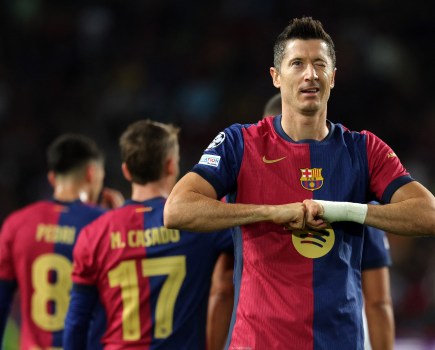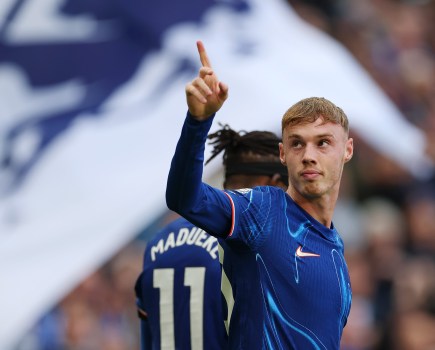 Foreign football shirts are universal across the African continent. Walking through Abidjan or Yamoussoukro, the Chelsea blue with Drogba 11 on the back can be seen in every direction. Similarly, Essien 5, in the same azure hue, abounds in Accra, whilst the name Eto’o, and Barcelona colours, are ubiquitous in Yaoundé – even since the Cameroon striker’s departure to Russia. Without a global Egyptian superstar, the same European presence is lacking in Egypt. With Mohammed Aboutrika, however, this hasn’t mattered at all.
Foreign football shirts are universal across the African continent. Walking through Abidjan or Yamoussoukro, the Chelsea blue with Drogba 11 on the back can be seen in every direction. Similarly, Essien 5, in the same azure hue, abounds in Accra, whilst the name Eto’o, and Barcelona colours, are ubiquitous in Yaoundé – even since the Cameroon striker’s departure to Russia. Without a global Egyptian superstar, the same European presence is lacking in Egypt. With Mohammed Aboutrika, however, this hasn’t mattered at all.
Exploring Egypt, one couldn’t escape Aboutrika 22, emblazoned atop the red of Al Ahly, or the Egyptian national team. The man was everywhere, and Egyptians wouldn’t let you forget it.
The country has changed since then. The devastating violence that followed the Ahly/Al Masry bout in Port Said last month was the latest episode in a turbulent 18 months for the nation, which emerged from the brutality of Tahrir Square into the sunlight of the Arab Spring as a fractured and splintered society.
Following the match, and a reported 74 deaths, Aboutreika, along with two other teammates – the so called Bermuda Triangle of Emad Moeteab and Mohammed Barakat, called time on their careers. One of football’s great political thinkers, reduced to retirement by the sheer horror and worthlessness of political violence.
Despite being named BBC African Footballer of the Year in 2008, Aboutrika has a fairly limited profile in Europe, mainly through his own choosing. Ahly have received offers for his services from various clubs, but the player has frequently refused moves on principle, citing the fact that the Cairene club have made him who he is.
This sums him up; a figure that is a beacon for all that is good about the modern Egyptian nation. Anyone asked would gush about Aboutrika’s qualities, both on and off the pitch. Even rival Zamalek fans, a team who has often been thwarted by a well timed Aboutrika goal, would shuffle uneasily, and then begrudgingly admit, that yes, he is most definitely a very special player, and most definitely a very special guy.
Why a special player? Well, the facts are hard to argue with. With Ahly, the club named ‘African Club of the Century’, Aboutrika has won 7 consecutive league championships, his arrival ending 4 years without success. Aboutrika was also a key component in the Egypt team that won consecutive Afcons in 2006 and 2008.
I witnessed his impact first hand during a league game in the summer of 2007. Ambling elegantly on the edge of the box; a goal line scramble, a hurried clearance, and the ball fell to the captain. Effortlessly, nonchalantly, he slammed the ball into the bottom corner, the resulting three points easing Ahly closer to another title. It was a last-minute wonder goal, Roy of the Rovers stuff, a captain’s strike that Steven Gerrard would have been proud of. The stadium exploded, ululating supporters, flares, confetti, you name it…and Aboutrika stood serene, before prostrating himself on the ground, facing Mecca, paying homage to Allah.
It was not the unruffled celebration of a Balotelli or a Cantona, an arrogant expression of superiority, it was the personal conviction of a player acutely conscious of his privilege.
This brings me onto Aboutrika the man, the special guy, the pride of a nation. The idea of a political footballer draws diverse images to mind: Paolo di Canio’s divisive salute in the Rome derby, or the late Sócrates and his democratic ideals. Aboutrika, with his Philosophy degree from the University of Cairo, is an altogether different prospect.
Everyone has a favourite Aboutrika anecdote. Mine is from his Tersana days: after learning that a teammate was receiving a modest wage compared to his own, Aboutrika refused to sign a new contract. Despite much cajoling from the club chairman, he stayed true to his principles, and insisted on accepting the meagre income.
The player has spoken out poignantly and articulately about subjects such as cancer, blood donation, poverty, and religion. His most famous political statement came during the 2008 Afcon competition, when, after scoring against Sudan, he revealed a shirt with ‘Sympathize with Gaza’ written on his chest.
This act made the midfielder a hero in the Gaza strip, and Palestinians with photographs, banners, and flags celebrated the Egyptian victory in a very public display of appreciation. Red 22 shirts became hugely popular in Palestine, as an incredibly public, political message, on such a big stage, resonated in the Arab world.
Aboutrika is aware, perhaps as much as anyone, how football and politics cross paths. Only time will tell the true ramifications of the recent violence, and the direction Egypt will take in the post-Mubarak era. One thing is certain though, that Egypt will stand in much better stead with men like Aboutrika inspiring the nation, be it on or off the pitch.
By Ed Dove
This article originally appeared in In Bed with Maradona






